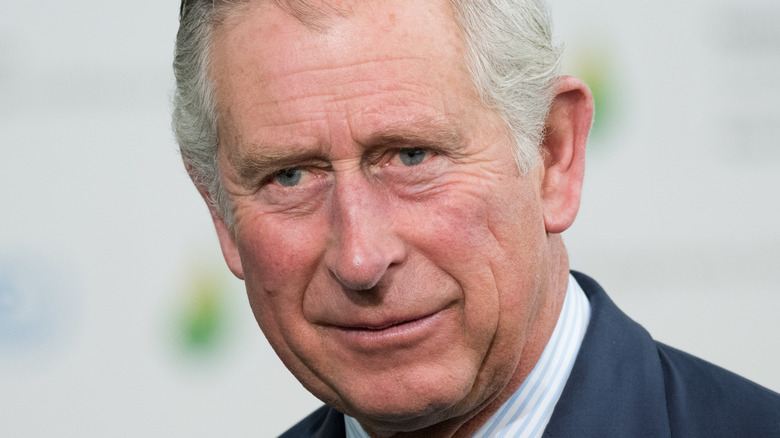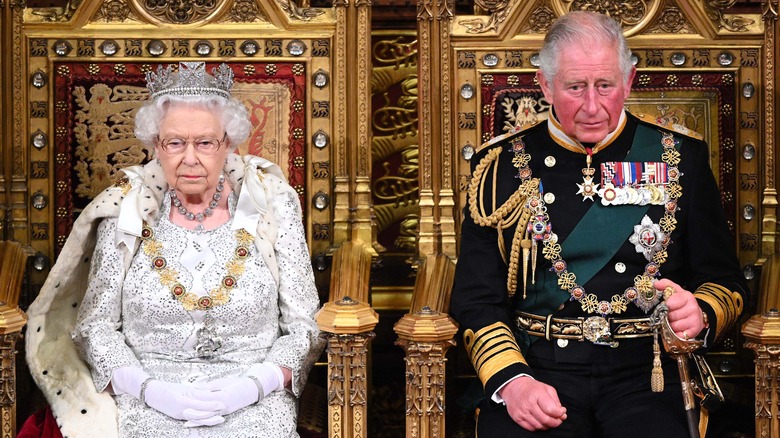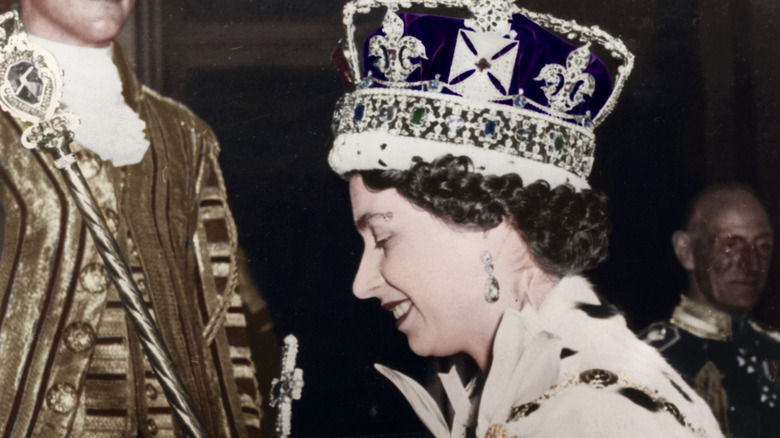Here's How Soon Charles Will Become King Following The Queen's Death
Britain's Queen Elizabeth II is, as of August 2022, the longest-reigning monarch in British history, and the second-longest-reigning monarch in world history, according to NPR News, having reigned over her realm since February 6, 1952. In fact, she is the only monarch most living Britons have ever known. "Inevitably a long life can pass by many milestones — my own is no exception — but I thank you all and the many others at home and overseas for your touching messages of great kindness," she said in 2015.
Though she's been blessed with exceptionally-long life, she can't live forever. However, the monarchy is steeped in rules and traditions going back centuries, so when she does die, the process to identify and install the next monarch, described in exacting detail via British Heritage, will happen immediately and (hopefully) with minimal fuss. And of course, Britain's monarchy is hereditary, which means that — barring his abdication or some other calamity — Elizabeth's firstborn son, Charles, will become king more or less immediately.
Dotting The I's And Crossing The T's
Before delving too deeply into the narrative about what will happen to Charles when his mother dies, it bears noting that the assumption is that Charles will not abdicate the throne nor precede his mother in death. Both of which could theoretically happen.
In a weird bit of British history, Queen Elizabeth II is the longest-reigning monarch in the country's history, while Prince Charles is simultaneously the longest-waiting heir-apparent to the throne in British history, according to Reader's Digest.
When his mother dies, Charles becomes king more or less immediately, according to British Heritage, pending the completion of a few platitudes and formalities, including his siblings kissing his hand, a meeting with his ascension council, and so on. Then there are oaths to recite, speeches to make, etc. So in one way, Charles will become king immediately after his mother's death (as Reader's Digest explains it), but in another way, it doesn't officially happen until the day following her death (as British Heritage explains it).
Ascension And Coronation Are Different Things
Though Charles will become king immediately after the death of Queen Elizabeth (or by another interpretation, some hours later pending the completion of a few formalities), that is merely the first step in a two-step process. Ascension is one thing. Coronation is another.
The coronation of a British monarch — the deeply-religious ceremony in which the monarch recites oaths and prayers and then is anointed with oil and crowned — is something that happens months or even a year or more after their ascension. In Charles' case, according to Town & Country Magazine, expect his coronation "months" after his ascension. Queen Elizabeth, for her part, ascended to the throne on February 6, 1952, according to the royal family's website, but wasn't crowned until June 2, 1953, nearly 16 months later. Elizabeth's predecessor on the throne was technically her uncle Edward VIII, but he abdicated before he was crowned, per Britannica. He was still king for those few months he reigned, coronation or no, but his brother, King George VI (Elizabeth's father), did eventually take his place.
Charles will still be king even as he awaits his coronation; UK passports and driver's licenses will be issued in his name, U.K. justice will be carried out in his name, and so on. The coronation doesn't make him king, but rather, is the final formality he'll have to complete as he transitions from heir-apparent to monarch.


